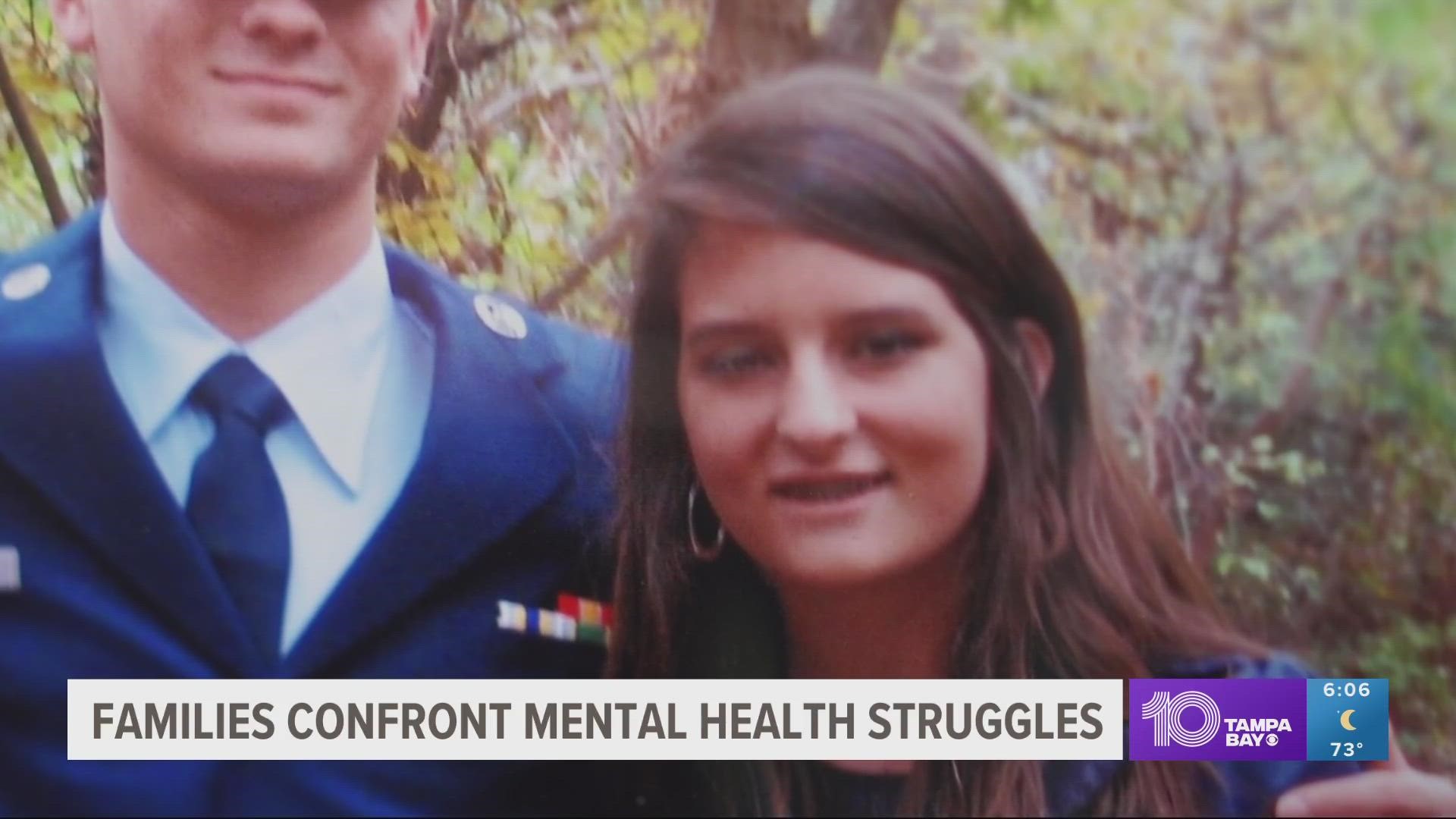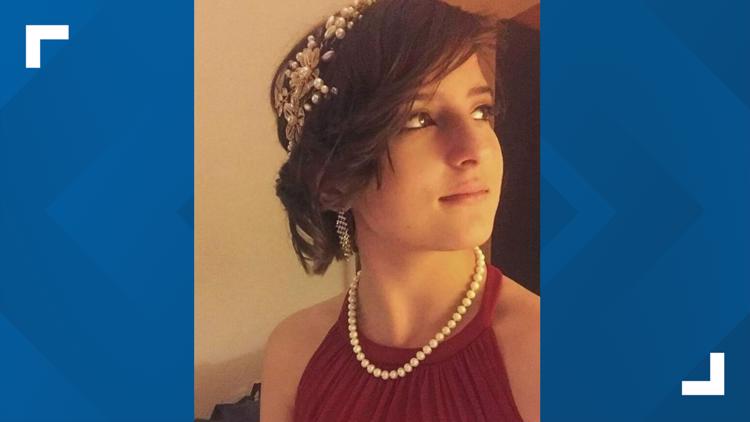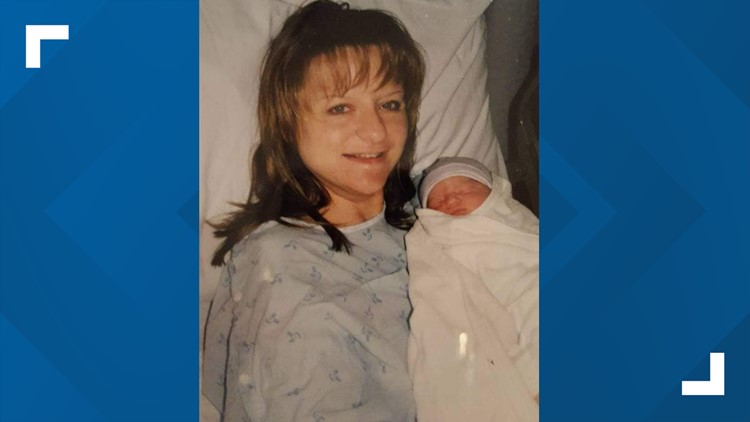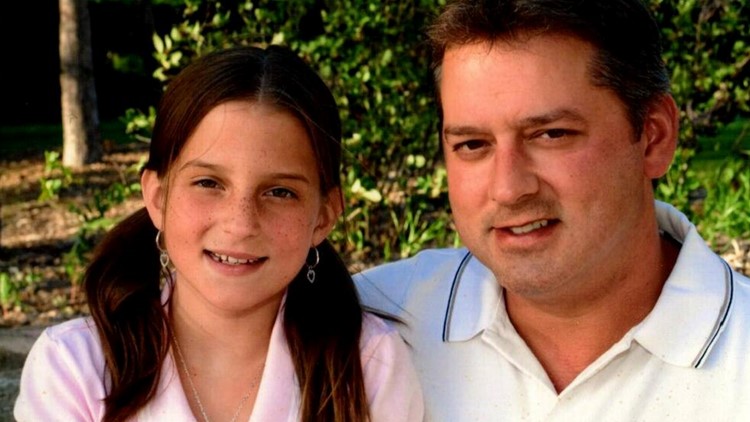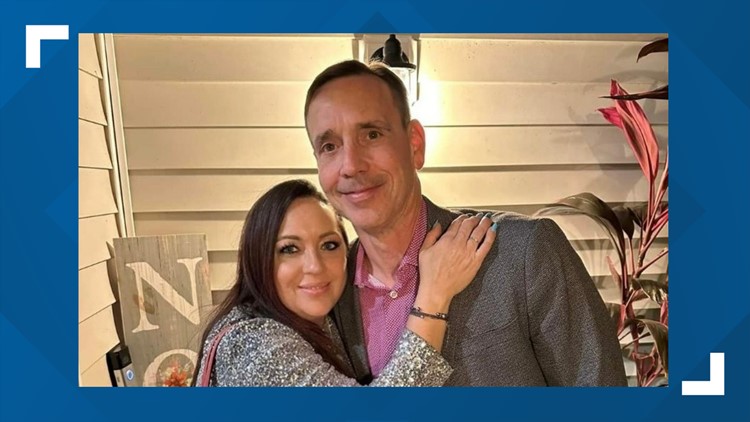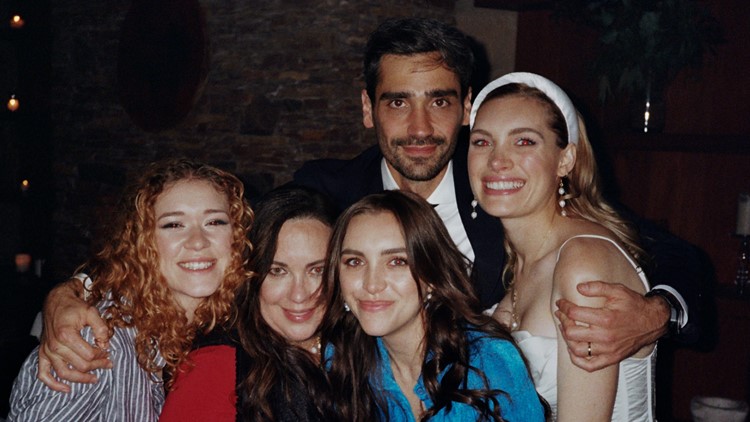TAMPA, Fla. — Lisa Acierno of Tampa dreads the month of March.
It would be her daughter Hailey's birthday. It's also when Acierno said, "We lost her."
Hailey died at 17 years of age in 2017. As her mother put it, mental illness, not suicide, killed the talented teenager. Her daughter was seldom without paper so she could draw or color. She was so smart, she aced her midterms despite weeks spent at the hospital due to her mental health, her mom said.
But most of all, Hailey cared for everybody.
"I never want anyone to feel as alone as she did and as desperate as she did," Acierno said. "This is how I'm coping. Just trying to make a difference."
Hailey and Lisa Acierno
Acierno started "Hailey's Voice of Hope" to shed light on mental illness and help break the stigma.
On top of training educators on how to intervene during a crisis, her organization has also partnered with Hillsborough County Public Schools to put brochures in every middle and high school in the county with a list of mental health resources.
Crisis Center: Pandemic spurred a 'behavioral health tsunami'
Clara Reynolds, president and CEO of the Crisis Center of Tampa Bay, said she hasn't seen the need this high ever in her career.
Mental health experts believe childhood depression and anxiety have already gone up over the years, but the pandemic exacerbated the problem.
"The pandemic created this opportunity for behavioral health tsunami, because individuals were really struggling during the pandemic, and those struggles have continued, even as our community has opened," Reynolds said.
Already, suicide was the second leading cause of death for people ages 10 to 14 and 25 to 34 in 2020, according to the Centers for Disease Control and Prevention.
However, the rates vary with more groups considered at higher risk including veterans, LGBTQ+ youth and adults between the ages of 35 and 64.
One study showed that more than four in 10 U.S. high school students said they felt persistently sad or hopeless during the pandemic. Stress takes its toll, especially in low-income areas.
With the need growing higher, the need for more resources is higher, too. Staffing shortages have been a struggle for many industries post-pandemic.
However, Reynolds said the upside in recent years is that more people are receptive to open about their mental health. Stigma silenced people to seek help before it was late.
"Usually, that was the biggest barrier is that nobody wanted to ask for help," Reynolds said. "Now, people are asking the workforce just has to catch up and I think it's coming."
Reynolds said the future post-pandemic may present an opportunity for the industry to innovate ways to evolve in order to meet the workforce demands.
For instance, the new 988 Suicide and Crisis Hotline was launched this past July. Telehealth has since boomed out of necessity when COVID-19 limited the use of in-person visits.
Possibilities may also include bridge programs, curriculums catering to behavioral health and updating criteria for who can be eligible to provide such services to attract more workers.
New legislation has also been passed out of tragedy. All school employees in Florida must be trained to get youth mental health awareness and assistance training. Demand for funding also appears to be growing louder.
Millions of dollars in grants were awarded last year to mental health and substance abuse care centers in order to expand 24/7 care out of necessity.
'Everyone that saw me would have said I was the happiest person on the planet.'
Lisa Pizarro-Yob is living proof of how important timely help can be.
Pizarro-Yob, who once sat on the board of directors for the Crisis Center of Tampa Bay, said she never thought she would need to ask for their services.
However, stress from losing her job, a divorce and illness all hit her in a matter of months. Yob said she felt like a burden on her family. She thought they would be better off without her.
“I still was going around doing the same things while all along planning my exit," Pizarro-Yob said.
Lisa Pizarro-Yob
She attempted to take her life through pills but her daughter found her in time. A call to the crisis center helped put her on a healthier path.
However, Pizarro-Yob said she still has ups and downs but stresses feeling blue is normal. She now has a safety plan in place with her family and loved ones to lift her up during times of hardship.
Since her suicide attempt, she told herself she'd promise to do what she could to help end the stigma and reassure others.
On top of sharing her story, financial contributions are being made for the betterment of people's mental health on her role as director of philanthropy at the Yob Family Foundation.
"Now, I look back and go, 'I didn't have to be ashamed. I have a mental health issue and it's OK because there's help and I'm worth saving,'" Pizarro-Yob said.
Her daughter now works as a musician and wrote a song dedicated to her mother and her own experience growing up with a parent in need of help.
'I hope that when I see her again, she says, 'Good job.''
Lisa Acierno isn't a crisis expert.
However, keeping Hailey's spirit of kindness alive through her organization could avert an emergency. Acierno finds comfort in helping others, but more importantly, the belief that she will see Hailey someday.
In the meantime, she hopes the work she's doing now is making her proud.
"This is a labor of love for my daughter... who I will love until the day that I die," Acierno said.
10 Tampa Bay Cares: Anyone experiencing a mental health crisis can contact the 988 Suicide and Crisis Lifeline or the Crisis Center of Tampa Bay at 211.

